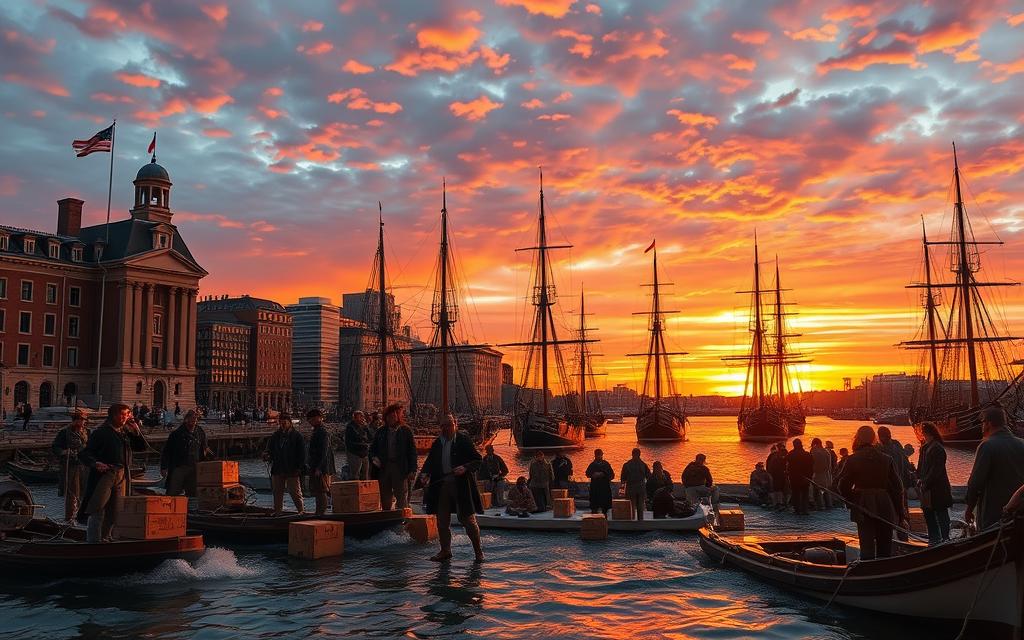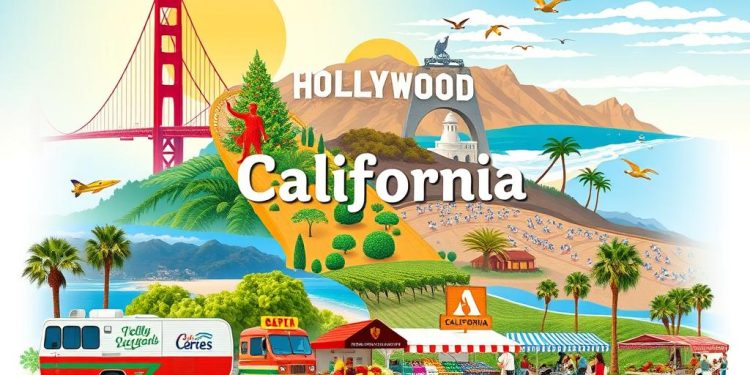The history of Massachusetts is a rich and intricate tapestry, intimately tied to the narrative of the American Revolution. As you explore this remarkable state, you will uncover the foundational stories that shaped not only Massachusetts but the entire nation. From the arrival of the Pilgrims seeking religious freedom in 1620 to Boston’s emergence as the crucible of revolutionary thought, Massachusetts stands as a testament to the spirit of perseverance and innovation. In pivotal moments such as the Boston Tea Party and the Boston Massacre, this state played an indispensable role in the fight for independence.
The culture of Massachusetts also leaves a significant mark, highlighted by its commitment to education and progressive social movements. Institutions like Harvard University, founded in 1636, reflect a long-standing tradition of academic excellence and leadership. With its rich past and enduring legacy, Massachusetts continues to inspire generations, inviting you to delve into the significant chapters of its history and explore the cultural influences that persist today.
Early Settlers: The Pilgrims and Puritans
The journey of the early settlers in New England began with the arrival of the Pilgrims and the establishment of the Massachusetts Bay Colony. Both groups significantly influenced the region’s cultural and social fabric.
The Arrival of the Pilgrims
In 1620, a courageous group known as the Pilgrims set sail from Plymouth, England, aboard the Mayflower, seeking a new life free from religious persecution. This voyage took 66 days, and after navigating the challenging waters, they landed in what is now Massachusetts. Of the original 102 passengers, about half perished during the harsh first winter in Plymouth, leading to a grim but resilient start for this new settlement.
By 1627, the population of Plymouth Colony had grown to approximately 160. The Pilgrims’ initial cooperation with the indigenous Wampanoag people during the 1621 Thanksgiving feast is a notable example of early settler-native collaboration. This marked a rare moment of harmony amidst the surrounding conflicts fueled by differing beliefs.
Formation of Massachusetts Bay Colony
Following the Pilgrims, in 1630, the Puritans established the Massachusetts Bay Colony under the leadership of John Winthrop. This group aimed to create a “city upon a hill,” reflecting their vision of a community rooted in religious ideals and strong governance. The Massachusetts Bay Colony began with over 1,000 passengers arriving on 17 ships, growing to nearly 20,000 within just a decade. Such rapid expansion marked an era of significant development for the early settlers in the region.
Significant Events that Shaped Massachusetts
Massachusetts played a pivotal role in the journey toward independence, marked by significant events that influenced the course of American history. Understanding these milestones sheds light on the struggles and aspirations of the colonists in their quest for freedom and self-governance. Among these events, the Boston Tea Party and the Boston Massacre stand out as critical turning points in the American Revolution.
The Boston Tea Party: A Catalyst for Revolution
The Boston Tea Party, occurring on December 16, 1773, represented a daring protest against British taxation without representation. Disguised as Native Americans, colonists dumped 342 chests of tea into Boston Harbor, signaling their refusal to accept the Tea Act’s imposed tax of three pence per pound. This act of defiance galvanized support for the American Revolutionary cause and marked a pivotal moment in the escalating tensions between Britain and its American colonies.
The Boston Massacre: Tensions Rise
In the context of rising discontent, the Boston Massacre on March 5, 1770, served as a tragic reminder of the growing hostility. A confrontation between British soldiers and colonists resulted in the deaths of five individuals, further intensifying the resentment toward British authority. The event sparked outrage and solidified anti-British sentiments among the colonists, setting the stage for greater resistance in the years to come.
The First Battles of the American Revolution
The conflict reached a critical point with the battles of Lexington and Concord on April 19, 1775. These first official military engagements marked the beginning of the American Revolution, demonstrating the colonists’ determination to fight for their rights and independence. The bloodshed and bravery exhibited during these confrontations highlighted Massachusetts’ central role in this struggle, as residents united against perceived tyranny, leading to the birth of a new nation.
The Importance of Boston in Revolutionary History
Boston stands as a paramount city in American history, recognized as the birthplace of the American Revolution. This vital location, often called the “Cradle of Liberty,” played an instrumental role in the events that ignited the revolutionary fervor among the colonies. As you delve into Boston’s revolutionary history, you will uncover the significant contributions of its citizens and the key figures who shaped the course of the American Revolution.
Birthplace of the American Revolution
Boston’s strategic significance during the American Revolution was unparalleled. As the main port in the region, it facilitated crucial supply lines for the Continental Army. The Siege of Boston saw nearly 15,000 American fighters gather to confront British forces. Remarkably, 200 cannons were captured from Fort Ticonderoga and moved to Boston under daunting winter conditions without any losses. Massachusetts led the charge in contributing soldiers with 16,449 enlisted in the first year of the Continental Army, constituting about 44% of total enlistments. This determined participation solidified Boston’s reputation as a pivotal force in revolutionary history.
Key Figures from Boston
The revolutionary spirit of Boston was invigorated by numerous key figures who rallied support for independence. Notable personalities such as Samuel Adams, John Hancock, and Paul Revere emerged from this city, each playing an essential role in advocating for the colonial cause. Five of the 56 signers of the Declaration of Independence hailed from Massachusetts. The presence of these influential leaders amplified Boston’s impact, helping to unify the colonies against British oppression. As you explore the narratives of these figures, you will understand the profound legacy they left behind in the fight for American freedom.
Massachusetts: Culture and Education
Massachusetts plays a pivotal role in American culture and education. The state is renowned for its commitment to academic excellence, primarily through institutions like Harvard University. Established in 1636, Harvard stands as the oldest institution of higher education in the United States, influencing countless educational practices and leadership paradigms across the nation. The university serves as a beacon of education, shaping the lives of many innovators and leaders who have significantly contributed to various fields.
Legacy of Institutions like Harvard University
Harvard University’s legacy is not the only highlight in Massachusetts’ educational landscape. The state is home to several prestigious universities, fostering an environment of research, creativity, and intellectual growth. This academic focus ensures a robust tradition of higher education, providing students with opportunities for personal and professional development. Many educational initiatives aim to address diversity, equity, and community engagement in schools.
Role of Religion and Social Movements
The culture of Massachusetts is deeply intertwined with its religious heritage, wherein the Puritan foundation influenced early governance and societal values. Alongside its rich religious background, the state has been a hub for significant social movements. From the abolition of slavery during the Civil War to contemporary efforts for civil rights, Massachusetts has consistently driven social change in the United States. Figures like Thoreau and Emerson emerged from this rich cultural climate, advocating for progress and reform.
| Key Areas | Details |
|---|---|
| Harvard University | Established in 1636, influential in shaping education nationally. |
| Social Movements | Played a crucial role in civil rights and abolitionist efforts. |
| Religious Heritage | Influenced by Puritan values, impacting governance and society. |
| Cultural Figures | Thoreau and Emerson, prominent in the Transcendentalist movement. |
| Educational Initiatives | Focusing on diversity and community engagement in schools. |
Conclusion
The rich history and vibrant culture of Massachusetts serve as a cornerstone of America’s foundation. From the early arrival of the Pilgrims in 1620 and the establishment of the Massachusetts Bay Colony in 1630, to Boston’s pivotal role during the American Revolution, this state not only witnessed but also actively shaped significant events that defined the nation. Historical incidents such as the Boston Tea Party and the Boston Massacre highlight Massachusetts’ critical participation in the fight against colonial oppression.
Moreover, the state’s commitment to education is exemplified by institutions like Harvard University, founded in 1636, which has become a global symbol of academic excellence. Massachusetts exemplifies a progressive culture, continually striving for inclusivity and innovation. As you explore its storied past, you’ll discover a unique intersection of history, culture, and education, all of which contribute to its lasting impact on American identity.
As you reflect on your journey through Massachusetts, it is clear that the echoes of its revolutionary spirit and rich cultural heritage continue to influence and inspire. This state is more than just a geographical location; it is a beacon of resilience, learning, and community spirit, shaping not only the present but also the future for generations to come.







